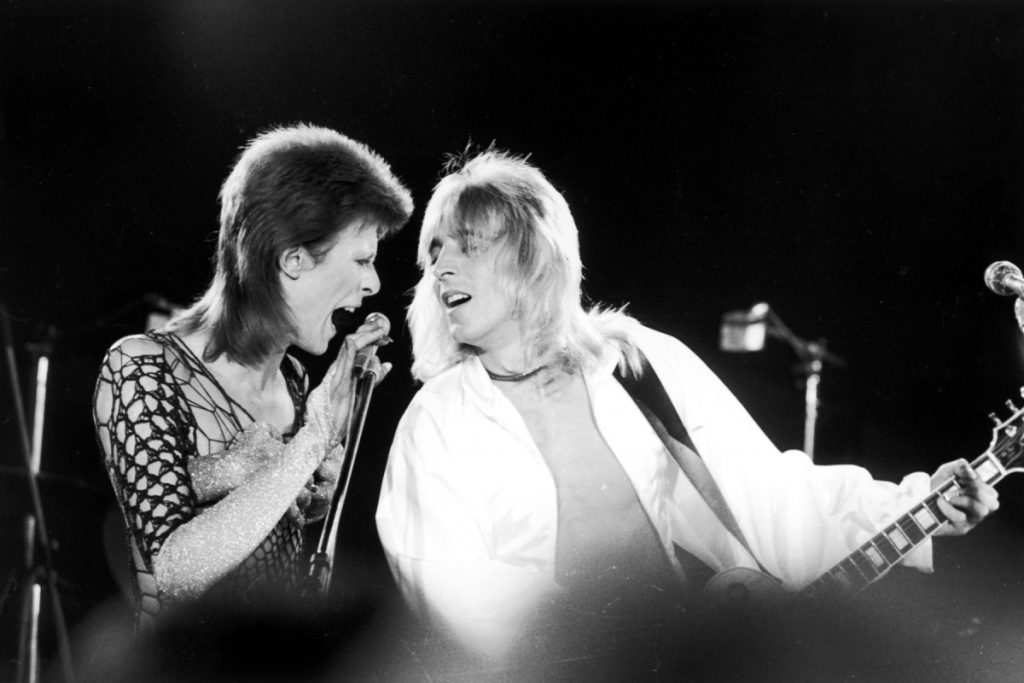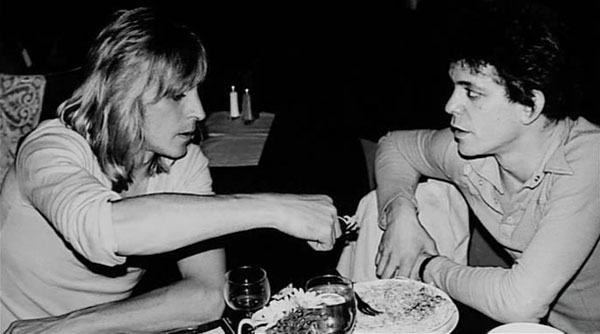It’s quiz time.
In the grand scheme of things, what one individual — directly or indirectly and through no fault of his own — proved to be a unique catalyst for David Bowie, John Mellencamp and Lou Reed reaching stardom?

Only the very savvy would answer, and likely rather quickly, “Mick Ronson” without a second thought and they’d be correct.
Music from across Ronson’s career was featured on the Sept. 4 edition of Greasy Tracks.
Click here to check out an archive of the program, while a playlist is here.
Bowie, Mellencamp and Reed remain the best examples — although there are many the talented guitarist and producer worked with over the years — but the remarkable notoriety and commercial success that trio attained due to their work with Ronson is incredible.
Things starting bubbling for Bowie following Ronson’s collaborating on his The Man Who Sold The World and Hunky Dory releases, but when Bowie put out The Rise and Fall of Ziggy Stardust and the Spiders from Mars in 1972, the impact proved to usher the turning point of Bowie’s career as a recording and touring artist.
It was Ronson’s rearrangement and adding of some lyrics and vocals to Mellencamp’s “Jack & Diane” — a track that probably would have never seen the light of day if not for Ronson getting ahold of it. Mellencamp would make it a late addition to his American Fool album in 1982. It was the second single released from it and would spend four weeks at No. 1 in the Billboard Hot 100, while American Fool would eventually reach platinum status five times. The Recording Industry Association of America named “Jack & Diane” one of the songs of the century and it remains Mellencamp’s most successful single.

Similar to Bowie, Reed had released several albums and singles and made no lasting impression as a solo artist following his taking leave of the Velvet Underground in 1970. It should be noted that Bowie and Reed were admirers of each other’s work and it was when Bowie and Ronson co-produced Reed’s Transformer. Ronson also played lead guitar on the album. Bowie and Ronson were fans of the Velvet Underground.
Transfomer and The Rise and Fall of Ziggy Stardust and the Spiders from Mars are regarded as go-to albums when it comes to glam or glitter rock. Minus the distinctive vocals of Bowie and Reed, the other “voice” that was on each of those releases and is also easily identified was the guitarwork of Ronson.
Affectionately known as “Ronno” to most and the “Jeff Beck of Hull” to others, Ronson was a native of Kingston upon Hull, England, where he got his start playing in the early 1960s.

Classically trained as a child, Ronson became proficient on piano, violin and recorder as well as the harmonium — Ian Hunter said Ronson was an excellent keyboard player. He initially wanted to be a cellist, but moved to guitar upon discovering the music of Duane Eddy — there’s no denying that tell-tale twang — and then there was no looking back.
Ronson played with a slew of primarily Hull-based groups before being recruited to join The Hype, a in-the-works backing band for David Bowie in 1970. The band was short-lived, but Ronson made an important musical connection with Bowie. A series of albums and tours later, Bowie was a household name and Ronson was an in-demand guitarist.
While hardly as theatrical as his on-stage relationship with Bowie, his time spent working with Ian Hunter produced a solid body of work and some of the tightest rock and roll line-ups around on stage.

His touring, session and production work ran the gamut as he was associated with such artists/groups as Bob Dylan, Roger McGuinn, Pure Prairie League, Mott The Hoople, Elton John, Morrissey, among others, including Connecticut’s own, Roger C. Reale.
Sadly for Ronson, his label wanted to make him into a star, a role that the guitarist was never truly comfortable in. He only released two solo albums before his death in 1993 at the age of 46.
